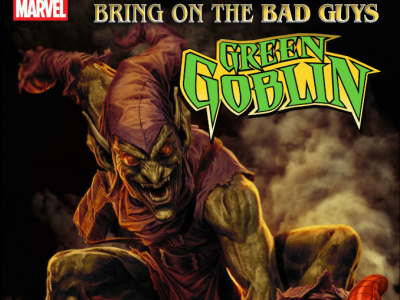The U.S. Supreme Court has denied Keith's Comics clerk Jesus Castillo's petition for writ of certiorari, the end of the road for this case. Castillo has paid a $4,000 fine and has begun serving a period of unsupervised probation. The case involved Castillo's sale of an adult title to an adult undercover agent at Keith's Comics in Dallas, Texas. Castillo's legal defense was mounted by the Comic Book Legal Defense Fund, which paid all expenses in the case (see 'CBLDF To Take Castillo Case to Supreme Court'). The appeal to the Supreme Court followed two appeals at the state level (see 'Second Castillo Appeal Denied,' and 'CBLDF Appeals Retailer Conviction').
Calling the Castillo case 'among the most appalling cases of injustice ever to come to the attention of the CBLDF,' Fund counsel Burton Joseph explained the appeal and the denial. 'It is rare that the Supreme Court accepts individual criminal cases for consideration,' he said. 'In the Castillo case, in spite of the odds, CBLDF appealed to the Supreme Court on the chance that they would reverse what appeared to be an unjust and unconstitutional decision in the Texas courts. The principle was important, but we knew the odds were long.'
CBLDF Director Charles Brownstein noted the positive elements extracted from the defeat. 'Unfortunately, fighting the right battles is not a guarantee of winning,' he said. 'The Fund put up a strong fight for Castillo against the rising tide of repression. We were successful in knocking out the second charge against Jesus and in getting a sentence where no actual jail time was served, but unfortunately the higher courts would not correct the blinding injustice at the heart of this case.'
CBLDF board member Neil Gaiman concisely noted how the case illustrated the special need for defense of the comics medium. 'I think the hardest thing to believe is that Jesus was found guilty of selling an adult comic, from the adult section of the store, to an adult police officer, and convicted because the DA convinced the jury that all comics are really intended for children,' he said. 'I can't imagine a world in which the same argument would have worked for books or for films -- and I'm afraid that highlights why comics retailers (and artists and writers and publishers) still need a Defense Fund, and still need to be defended.'
Another CBLDF board member, attorney Louise Nemschoff, noted the chilling effect the case will have on the medium in her appeal for support of the Fund. 'Perhaps the worst thing about the decision is the chilling effect it will have on everyone else working with comics and graphic novels,' she said. 'As we approach another election year, we can expect to see an increase in such attacks on free expression. Now, more than ever, we need the CBLDF to both educate the public and defend those working in the industry from further incursion on First Amendment rights. It deserves our whole-hearted support.'







